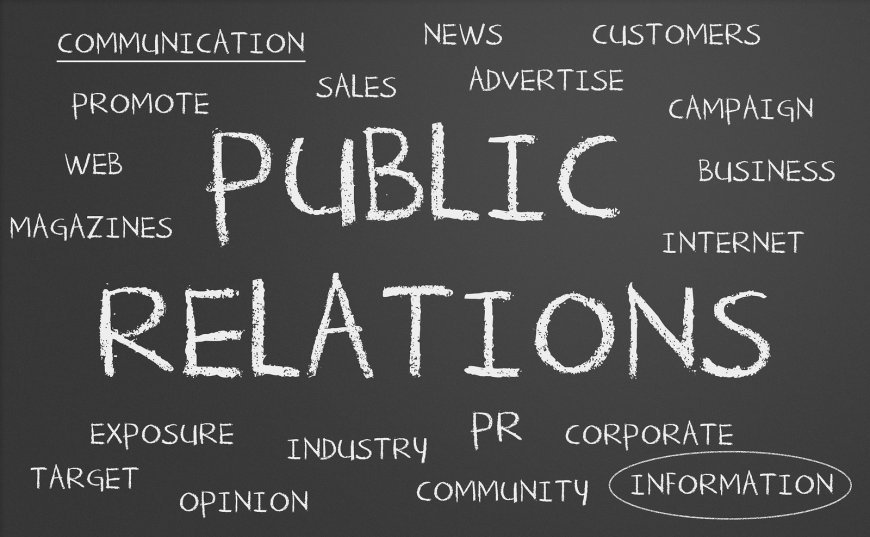Is the Rise of Impact PR Reviews Changing How We Define Trust Online?
Impact PR reviews are a modern form of strategic content marketing often commissioned by businesses, professionals, and entrepreneurs to bolster their online reputation. They are not traditional reviews written spontaneously by customers or third parties. Instead, they are often journalistic-style articles, thought leadership pieces, or branded storytelling content produced by PR firms and published on authoritative websites or news platforms.

In an era dominated by digital content, the way we define and evaluate trust online is evolving rapidly. From personal blogs to professional review sites, the credibility of online information is under constant scrutiny. At the heart of this transformation is a new wave of digital public relations strategies — particularly Impact PR reviews — that blur the lines between promotion and authenticity. These reviews, crafted to enhance visibility and trustworthiness, are becoming central to how businesses establish their reputations in the crowded online space.
But as they grow in prominence, one question becomes increasingly urgent: Are Impact PR reviews redefining how we trust online content? This article explores the emergence of Impact PR reviews, how they influence digital perception, and what this means for the future of online trust.
What Are Impact PR Reviews?
Definition and Purpose
Impact PR reviews are a modern form of strategic content marketing often commissioned by businesses, professionals, and entrepreneurs to bolster their online reputation. They are not traditional reviews written spontaneously by customers or third parties. Instead, they are often journalistic-style articles, thought leadership pieces, or branded storytelling content produced by PR firms and published on authoritative websites or news platforms.
These reviews serve several purposes:
-
Improve online visibility (especially in Google search)
-
Position individuals or brands as industry leaders
-
Build credibility through association with reputable media outlets
-
Drive social proof and customer confidence
Key Features
Some distinguishing features of Impact PR reviews include:
-
Positive tone: These pieces typically highlight achievements, innovation, or value propositions.
-
High-production quality: Content is often well-written, edited, and published on high-authority websites.
-
Third-party endorsement feel: Though paid or commissioned, the tone mimics that of objective journalism.
-
SEO Optimization: Keywords and strategic formatting help ensure strong search engine performance.
The Evolution of Online Trust
From Organic Reviews to Strategic Narratives
Online trust once relied heavily on organic content like user reviews, forum discussions, and social media feedback. Platforms such as Yelp, TripAdvisor, and Amazon built entire ecosystems around the idea that unbiased peer reviews are the most trustworthy form of information. However, issues like fake reviews, manipulation, and disinformation have undermined the public's confidence in these platforms.
In response, companies began investing in reputation management, enlisting PR professionals to help control their narrative. Impact PR reviews are a natural extension of this — providing curated, consistent, and compelling content in a controlled format. While critics argue this lacks authenticity, proponents believe it represents a more reliable, brand-safe alternative to chaotic user-driven platforms.
The Rise of Content Credibility Layers
In the past, trust online was binary — a site or source was either credible or it wasn’t. Now, users assess trust based on multiple credibility layers, including:
-
Domain authority of the publishing site
-
Writing tone and professionalism
-
Transparency about sponsorship or editorial oversight
-
Consistency across multiple platforms
-
Presence of verified facts, data, or testimonials
Impact PR reviews often check several of these boxes, which explains why they’re gaining traction. By combining storytelling with factual content and strategic publication, these reviews build layered credibility that resonates with today’s more discerning digital audience.
Who’s Behind the Shift?
The Role of PR Firms and Digital Agencies
Public relations firms are evolving beyond traditional media pitching and event planning. Today’s top PR agencies specialize in digital thought leadership, reputation management, and online authority building. They act as intermediaries between brands and media platforms, offering end-to-end services that include:
-
Interviewing clients and crafting narratives
-
Ghostwriting articles or reviews
-
Pitching and placing content on media sites
-
Leveraging partnerships with content distribution networks
Companies like Impact Authority PR, BrandPush, and Authority Builders exemplify this approach, helping individuals and businesses gain exposure through curated, paid editorial placements.
Why Brands Are Opting for Impact PR Reviews
The benefits are both strategic and psychological. Brands choose Impact PR reviews because:
-
They control the message: Unlike organic reviews, which may be unpredictable or negative.
-
They drive SEO traffic: Quality backlinks and optimized content improve rankings.
-
They convey professionalism: Being featured in an online magazine or business outlet boosts perceived legitimacy.
-
They influence buyer psychology: Customers often equate media presence with brand reliability.
Pros and Cons of Impact PR Reviews
The Benefits
-
Enhanced Credibility
Being featured on high-authority platforms helps businesses stand out in competitive markets. -
Improved SEO and Online Presence
Articles indexed by search engines generate long-term traffic and backlinks. -
Narrative Control
Brands can highlight specific features, success stories, or value propositions. -
Faster Reputation Building
A single well-placed review can fast-track a brand’s recognition in a niche market. -
Conversion Boost
Visitors who see a brand featured in a reputable article are more likely to convert.
The Drawbacks
-
Potential for Misleading Impressions
If readers believe the content is objective journalism, they may be misled. -
Pay-to-Play Ethics
Critics argue that paid content dressed as organic reviews undermines journalistic integrity. -
Cost Barrier for Small Businesses
Professional PR placements can be expensive, leaving smaller players at a disadvantage. -
Dilution of Real Reviews
A flood of strategic content may obscure genuine customer experiences.
How Readers Are Adapting
Increased Digital Literacy
Today’s readers are becoming more adept at identifying sponsored or strategic content. Subtle signs such as disclosures (“sponsored post,” “in partnership with”) or polished, promotional language raise red flags for some users. This awareness has shifted the definition of trust from authenticity to transparency.
Readers are increasingly asking:
-
Who wrote this?
-
Why was it written?
-
What’s the intent behind the message?
This doesn’t mean Impact PR reviews are ineffective. Rather, they must now coexist with an informed audience that values clear disclosure and value-driven content over disguised promotion.
Blending Objectivity with Branding
The most successful Impact PR reviews don’t simply promote — they inform, educate, or entertain. Readers are more likely to trust content that offers real value, even if it’s strategic. For example:
-
An article that shares insights from a business leader’s journey
-
A review that compares product features transparently
-
A story that addresses customer pain points in detail
In this way, Impact PR is pushing brands to earn attention rather than just buy it.
Trust Metrics: Old vs. New
| Traditional Trust Metrics | Emerging Trust Metrics |
|---|---|
| Star ratings | Source authority (e.g., Forbes, Inc.) |
| Number of reviews | Narrative quality and consistency |
| Verified purchases | Transparent sponsorship disclosures |
| Organic testimonials | Expert mentions or thought leadership |
| Word of mouth | SEO visibility and brand presence |
This shift illustrates how Impact PR reviews are shaping a new ecosystem of digital trust where visibility, authority, and narrative control can carry as much weight as traditional feedback.
The Future of Online Trust: Hybrid Models
Integration with Authentic Customer Feedback
One way the market is adapting is by blending curated content with authentic voices. Brands are increasingly:
-
Linking Impact PR reviews with user testimonials
-
Including case studies or verified data within strategic articles
-
Using reviews as part of broader educational campaigns
This hybrid approach provides the best of both worlds: credibility from authoritative platforms and authenticity from real users.
AI and Trust Automation
As artificial intelligence tools become more integrated into content curation, trust metrics may become more algorithmic. Google’s Helpful Content Update already penalizes shallow, promotional content. AI may soon be able to differentiate genuine expertise from strategic fluff, further refining the landscape of trust.
This will pressure PR firms and brands to maintain high content quality, offer real insights, and avoid over-polished or hollow narratives.
Ethical Considerations
Transparency vs. Manipulation
At the heart of the Impact PR debate is an ethical question: Are we being transparent enough? While not inherently deceptive, these reviews often blur lines. Critics worry that without clear labeling, readers may mistake promotional content for unbiased journalism.
Ethical best practices include:
-
Disclosure of paid content
-
Balanced tone with facts and nuance
-
No false claims or exaggerated data
The Role of Regulation
Regulators like the Federal Trade Commission (FTC) in the U.S. have guidelines about sponsored content. As Impact PR becomes more widespread, stricter enforcement and clearer industry standards may emerge, demanding greater transparency and accountability from both brands and media platforms.
Conclusion: Redefining Trust for the Digital Age
Impact PR reviews are redefining how trust is established, perceived, and maintained in the online space. They offer brands a powerful tool to influence perception, build authority, and control narratives in a noisy digital world. However, with great influence comes great responsibility.
As these reviews become more prevalent, consumers, regulators, and content creators must evolve their standards of trust. Transparency, value, and consistency will become the new hallmarks of credible digital presence.
In the end, Impact PR isn’t about faking trust — it’s about reengineering it for a modern age where attention is currency and perception is everything. The challenge going forward will be to ensure that this trust is not only earned but also honest.










































































































































